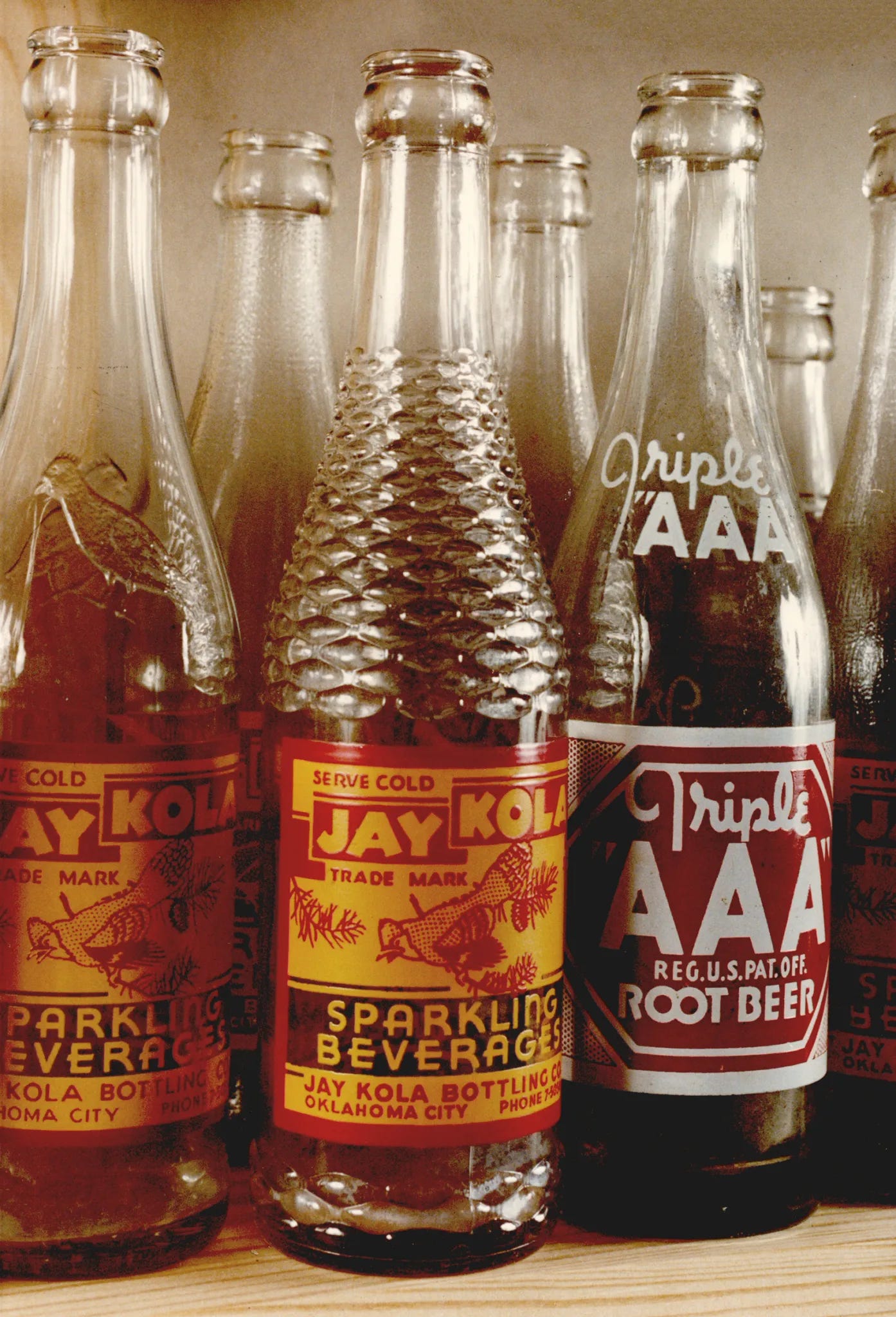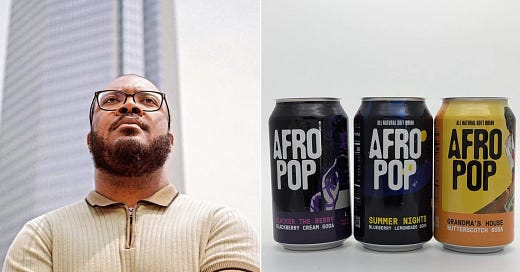Afropop tastes like a family reunion: Oklahoma’s Black-owned soda
Oklahoma entrepreneur Jamel Stephens revives a Black soda legacy with bold flavors and an Afrofuturistic design.
It’s time to ditch the Faygo, forget the Fanta, and pick up a can of Afropop. That’s the message from the founder of Oklahoma’s only Black-owned soda company.
Since launching his first product in December 2023, Jamel Stephens has had a problem. He can’t keep his cans of all-natural craft soda in the stores because they keep selling out.
“I think Afropop is very unapologetic, and I think it’s very bold. We put a Black woman on the face of a can and put her in front of anyone and everyone for them to see,” Stephens told The Black Wall Street Times Saturday.
Support The Black Wall Street Times to amplify stories like Afropop—where Black culture, creativity, and entrepreneurship take center stage.
With locations across the state’s five major cities so far–OKC, Moore, Norman, Tulsa and Broken Arrow–millions of Oklahoma have the opportunity to drink culture in a can. Afropop joins other companies in what is set to become a 600 billion dollar industry by 2030.
While major corporations cave to far-right President Donald Trump’s ban on diversity, equity and inclusion initiatives (DEI), Stephens is betting on Black, with bold new flavors available for all Oklahomans to enjoy.
From the butterscotch cream of Grandma’s House to the rich darkness of Blvcker The Berry, Stephens partnered with a local artist to personally design the can of each flavor.
“I grew up in rural Oklahoma, and I found my cultural identity through artistry. I wanted to create a product with a blank canvas that allows other artists to design the packages for me,” Stephens said. “And for me, Afrofuturism is the foundation for Afropop, that freedom of expression and the belief that people can tell their own stories.”
Black-owned soda is part of Oklahoma’s history
Grandma’s House, with a taste that only be described as a family reunion, is a crowd favorite that can be found at the Market at Eastpointe in OKC or Fulton Street Books & Coffee on Black Wall Street in Tulsa’s Historic Greenwood District.
For Stephens, the familiar flavor carries on the tradition of Black-owned soda companies that came before him.
As early as 1918, Percy James and his wife, Hattie, had established Oklahoma’s first Black-owned soda company, according to the Oklahoma Historical Society. Jay-Kola. Named after their daughter Jewel, the company was born out of segregation. With Coca-Cola refusing to sell in Black neighborhoods, James decided to produce his own brand of cola in various flavors.

For over 50 years, the company operated and trucked products across the state. As one of the business owners in OKC’s historically Black Deep Deuce neighborhood, James went on to establish the Jewel Theater. Jay-Kola even sponsored Oklahoma City’s negro baseball team, the Jay-Kola Giants, in the 1940s.
James’ retirement in 1963 due to health reasons eventually led to the end of the franchise.
The historic company was originally named Afri-Cola, and Stephens said founding AfroPop a century later feels like carrying the baton for Black-owned soda.
“100 years later, we’re still not seeing that representation that we want in soda, and so another soda company exists to disrupt and to change the beverage industry,” Stephens said.
The future of Afropop
Despite being in operation for only a year, Stephens has big plans for the brand. He recalled the moment he realized Afropop was bigger than himself.
During the early stages of the company, he once walked into Eastside Pizza, a popular Black-owned spot in OKC. A customer asked him about his company and offered to donate money to support Afropop.
“Hey, I heard you’re starting a Southern company called Afropop,” Stephens recalled the man saying.
“And I said, yeah. And he looked at me and said, ‘Can I give you some money for this?’ I said, No, it’s free. You can have it,” Stephens explained. “And he said, ‘No, I want to be a part of something.’ And he literally said that he was almost going to cry because he never knew that he needed to see himself in a can of soda.”
According to Stephens, the three C’s of Afropop are craft, creativity and culture, and he’s got big plans.
“I want to foster creativity specifically within the Black community and allow artists to continue to design artworks for our pieces and be able to amplify their voices, as well as creating scholarships and grants for Black creatives and the culture,” Stephens said.
Visit Afropop’s website to learn more about their story and where to find a can of culture near you.
At The Black Wall Street Times, we don’t just report culture—we celebrate the creatives reshaping it.
From soda cans to street murals, Black artists and entrepreneurs like Jamel Stephens are reimagining what’s possible in Oklahoma and beyond. But storytelling like this takes resources.
$8/month — Support reporting that amplifies Black innovation
$80/year — Power the coverage of art, culture, and community
$250/year — Become a Founding Member and help us preserve the legacy while shaping the futureInvest in the movement. Fuel the culture. Support The Black Wall Street Times.








You had me at the mention of Oklahoma's black baseball team. Maryland might be a reach at the present time, but I'll see what I can do...